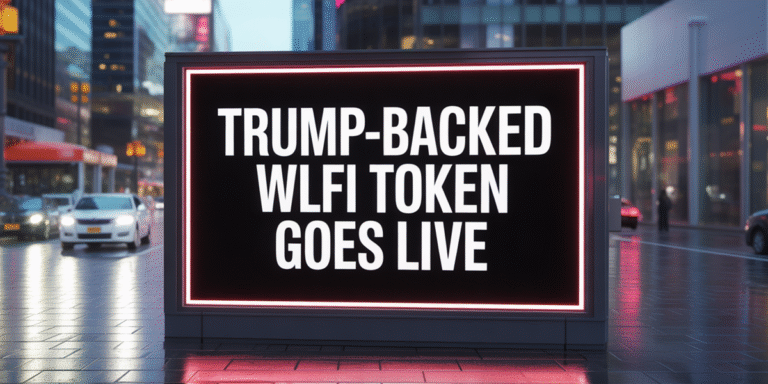South Korea Suspends All New Crypto Lending Amid Market Turmoil
Key Takeaway: South Korea immediately suspends all crypto lending after 13% of borrowers face liquidation within first month of operations.

FSC Orders Immediate Halt to All Lending Services
South Korea’s Financial Services Commission (FSC) issued an emergency directive on August 19, 2025, ordering all domestic cryptocurrency exchanges to immediately cease new lending operations. The unprecedented move affects major platforms including Upbit and Bithumb, following explosive growth that saw over 27,600 investors borrow $1.1 billion in just one month.
The regulatory intervention came after approximately 13% of borrowers faced forced liquidations, triggering concerns about systemic risks to retail investors. “The services exist in a legal gray area and pose a high risk of user losses,” the FSC stated, warning of potential on-site inspections for non-compliant exchanges.
Lending Boom Turns Into Market Chaos
The crypto lending frenzy began in July 2025 when major Korean exchanges launched competing services with increasingly aggressive terms. Upbit initially allowed users to borrow up to 80% of their deposit value, while Bithumb escalated competition by offering loans worth up to four times a customer’s holdings.
Within weeks, approximately 27,600 investors had borrowed 1.5 trillion Korean won ($1.1 billion), primarily using Bitcoin, XRP, and Tether as collateral. However, market volatility quickly exposed the risks of high-leverage borrowing, with over 3,500 investors facing liquidation when positions moved against them.
The FSC identified specific disruptions involving Tether lending services, which created unusual sell-off patterns and temporarily distorted stablecoin prices across Korean trading platforms. These lending-induced price anomalies undermined market stability and created additional risks for retail participants.
Galaxy Digital Flags Rising Leverage Risks
The regulatory crackdown coincided with warnings from Galaxy Digital’s Q2 2025 report, which highlighted growing leverage across global crypto markets. The research showed crypto-collateralized loans jumped 27% in Q2 to $53.1 billion globally, reaching the highest level since early 2022.
Recent market volatility demonstrated these risks in action. Bitcoin’s retreat from $124,000 to $118,000 triggered over $1 billion in liquidations across cryptocurrency derivatives, marking one of the largest liquidation events in months.
Korea’s Regulatory Evolution
South Korea’s crypto lending suspension represents the latest chapter in the country’s complex relationship with digital asset regulation. Since implementing foundational cryptocurrency rules in 2020, including Anti-Money Laundering requirements and the Virtual Asset User Protection Act in 2023, regulators have struggled to keep pace with innovation.
The lending crisis emerged despite ongoing efforts to modernize crypto regulation. President Lee Jae-myung’s administration introduced the comprehensive Digital Asset Basic Act to parliament in June 2025, which would have formally permitted crypto lending under proper oversight.
Korean regulators had previously expressed concerns about leverage-based crypto products. In July 2025, the FSC established a joint task force with the Financial Supervisory Service specifically to address crypto lending risks. The regulator issued preliminary warnings about the “legal gray area” surrounding these services.
Upbit voluntarily discontinued its USDT lending service in late July following regulatory pressure, while Bithumb reduced its leverage ratio from 4x to 2x in August. However, these voluntary measures proved insufficient to address mounting systemic risks.
Exchange Response and Market Impact
The suspension affects all new lending operations, though existing contracts can continue until maturity. Industry analysts have mixed reactions to the regulatory approach. DNTV Research’s Bradley Park argued that better safeguards and transparency are needed rather than complete shutdowns.
The lending ban may temporarily impact South Korea’s significant role in global crypto trading, particularly for altcoins where Korean exchanges provide crucial liquidity. Upbit alone holds a 59% market share in Korea and accounts for approximately 13.97% of XRP trading volume globally.
Path Forward: Structured Regulation Ahead
The FSC has committed to developing formal regulatory guidelines “swiftly” to protect users while ensuring market stability. Officials indicated that crypto lending services could resume once proper frameworks and safety mechanisms are implemented.
The temporary ban occurs alongside South Korea’s broader shift toward crypto-friendly policies, including preparation for the country’s first spot cryptocurrency ETFs and development of Korean won-pegged stablecoin regulations.
Additional regulatory initiatives include comprehensive stablecoin legislation expected to be submitted to parliament in October 2025, requiring transparent collateral management and enhanced compliance standards.
Conclusion
South Korea’s decisive action to suspend crypto lending demonstrates regulators’ commitment to protecting retail investors from unchecked leverage expansion. While temporarily disruptive, the measure provides necessary breathing room to establish proper safeguards before resuming these high-risk financial products.
The intervention reflects South Korea’s strategy of embracing digital asset innovation while maintaining robust investor protections, potentially serving as a model for other jurisdictions facing similar leverage-related risks in rapidly evolving crypto markets.
Sources: Information compiled from 99Bitcoins, Cointelegraph, CoinDesk, Galaxy Digital research reports, and official Financial Services Commission statements.



